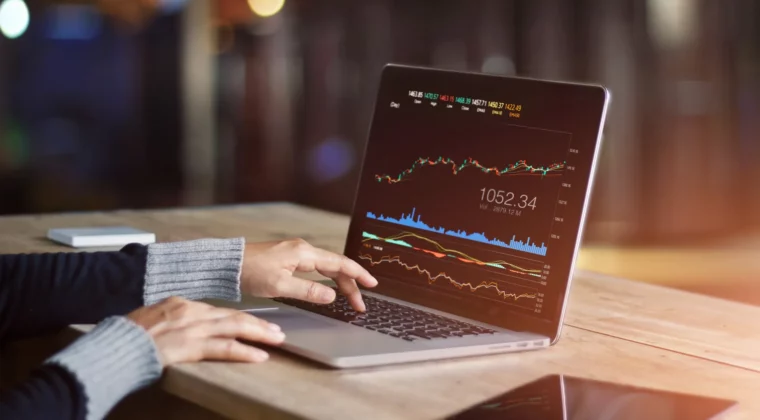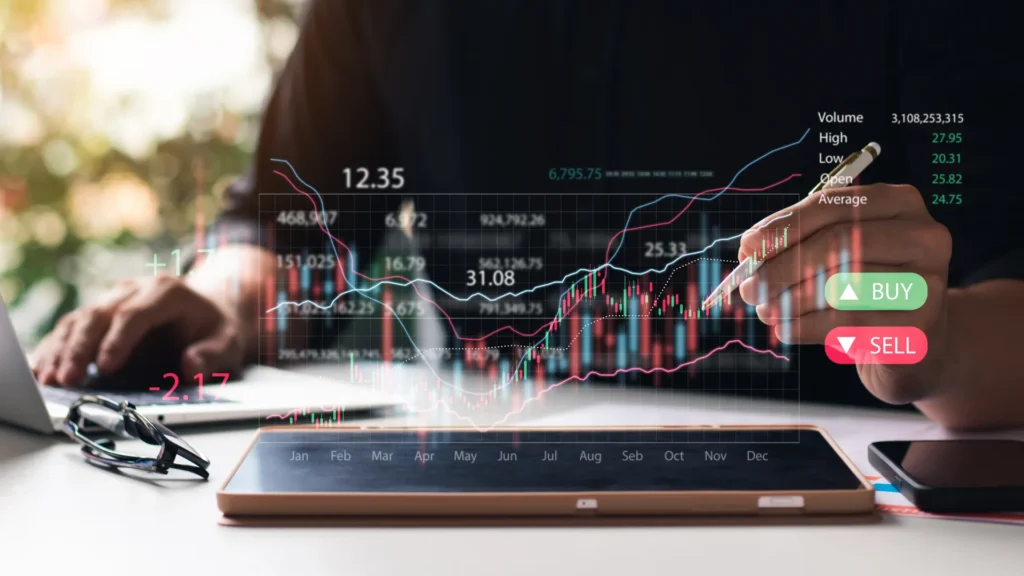-
- Plateformes de trading
- Application PU Prime
- MetaTrader 5
- MetaTrader 4
- PU Copy Trading
- Trader Web
- PU Social
-
- Conditions de Trading
- Types de compte
- Spreads, Coûts et Swaps
- Dépôts et Retraits
- Frais et Charges
- Heures de Trading

Indices trading and forex trading are both types of financial trading, but they involve different assets and markets. Forex trading, on the other hand, involves buying and selling currencies which involves forex traders speculating on the future movement of one currency against another.
Indices trading, on the other hand, involves buying and selling a portfolio of stocks or other assets that represent a particular market or sector. However, it is important to note that because an index only refers to a benchmark that tracks the performance of a group of assets, indices cannot be directly traded themselves. Instead, market participants will trade indices through derivatives such as futures or contracts for differences (CFDs).
As mentioned above, forex trading involves buying and selling currency pairs. Forex traders are essentially trading one currency for another, and this is expressed in pairs. For example, if a trader was to buy the EUR/USD pair, they would be trading the euro for the US dollar. Common pairs traded in forex include EUR/USD and USD/JPY, and GBP/USD.
On the other hand, trading indices through CFDs involve buying or selling contracts for indices like the S&P 500, FTSE 100, or the Nikkei 225. These indices track a basket or pool of stocks in various countries. For example, the S&P 500 tracks US stocks, the FTSE tracks UK stocks, and the Nikkei tracks Japanese stocks.
However, there are indices that track other asset classes too. The DXY, or US dollar index, tracks a basket of currencies that are commonly traded against the dollar. There’s also the VIX or volatility index, which tracks the general volatility of US stocks by weighting S&P 500 options contracts.
Find Out More About Indices Trading
The forex market tends to experience a lot more volatility as compared to the indices market because currency prices can fluctuate rapidly based on global economic and political events, making it more compatible for in-day traders such as scalp and day traders. On the other hand, significant value movements are usually needed for occasional shifts in indices prices as they tend to be highly diversified baskets of assets that smooth out a lot of volatility, making them more suitable for multi-day traders like swing traders.

The forex trading market is open for 24 hours, 5 days a week as it remains active round-the-clock from 5 P.M. EST Sunday until 5 P.M. EST Friday. The forex market opens in Sydney, then stays open in various forex hubs around the world in Tokyo, London and New York.
On the contrary, indices trading is typically limited to trading hours that match the exchange hours of the relevant stock market. However, this can be circumvented by trading index CFDs, where extended hours can be offered. PU Prime, for instance, offers 23-hour trading for most major index CFDs.
While in indices trading, trading does exist nearly around the clock for the electronically traded e-minis, the volume may be lower than the forex market, and liquidity during off-market hours could be a concern. This means that forex traders have more flexibility in terms of when they can trade.
The leverage offered for trading forex or indices typically depends on your broker. In the case of PU Prime, a leverage of up to 500 (and 1000 for Pro accounts) is offered for most major and minor forex pairs, as well as highly liquid indices including major US, EU, UK, and Asian indices. These include the S&P 500, FTSE 100, and the China 50.
For less liquid instruments, including exotic currency pairs and smaller indices like the Bovespa, which tracks the Brazilian stock market, significantly less leverage is allowed – as low as 20 times, which corresponds to a margin requirement of 5%.
Want To Understand The Fundamentals Of Forex Trading
The forex market and indices market also differ in terms of the types of market participants involved.
Forex market participants are typically made up of governments, central banks, corporations, financial institutions, and retail traders. Governments and central banks use the forex market to manage their country’s currency exchange rates, while corporations and financial institutions use it to hedge against currency risks and to facilitate international trade. Retail traders, on the other hand, are individual investors who trade forex for speculative purposes.
Indices market participants, on the other hand, are mainly institutional investors such as pension funds, mutual funds, and hedge funds. These participants buy and sell stocks in order to track the performance of a particular stock market index, such as the S&P 500 or the Dow Jones Industrial Average. Retail traders can also participate in the indices market through exchange-traded funds (ETFs) or CFDs.
Lastly, the trading strategies typically used for trading forex can differ from that used in indices trading. Here are some ways in which forex trading strategies can differ from indices trading strategies:
Overall, forex trading and indices trading have some key differences in terms of the assets traded, market volatility, leverage, trading hours, market participants used. Understanding these differences is important for traders who are considering trading in either of these markets.
Want To Start Trading Forex Or Indices

Tradez le Forex, les indices, Métaux et plus encore avec des spreads faibles et une exécution ultra-rapide.
Inscrivez-vous pour un compte réel PU Prime grâce à notre procédure simplifiée.
Approvisionnez facilement votre compte grâce à un large éventail de canaux et de devises acceptées.
Accédez à des centaines d’instruments avec les meilleures conditions de trading.
Please note the Website is intended for individuals residing in jurisdictions where accessing the Website is permitted by law.
Please note that PU Prime and its affiliated entities are neither established nor operating in your home jurisdiction.
By clicking the "Acknowledge" button, you confirm that you are entering this website solely based on your initiative and not as a result of any specific marketing outreach. You wish to obtain information from this website which is provided on reverse solicitation in accordance with the laws of your home jurisdiction.
Thank You for Your Acknowledgement!
Ten en cuenta que el sitio web está destinado a personas que residen en jurisdicciones donde el acceso al sitio web está permitido por la ley.
Ten en cuenta que PU Prime y sus entidades afiliadas no están establecidas ni operan en tu jurisdicción de origen.
Al hacer clic en el botón "Aceptar", confirmas que estás ingresando a este sitio web por tu propia iniciativa y no como resultado de ningún esfuerzo de marketing específico. Deseas obtener información de este sitio web que se proporciona mediante solicitud inversa de acuerdo con las leyes de tu jurisdicción de origen.
Thank You for Your Acknowledgement!